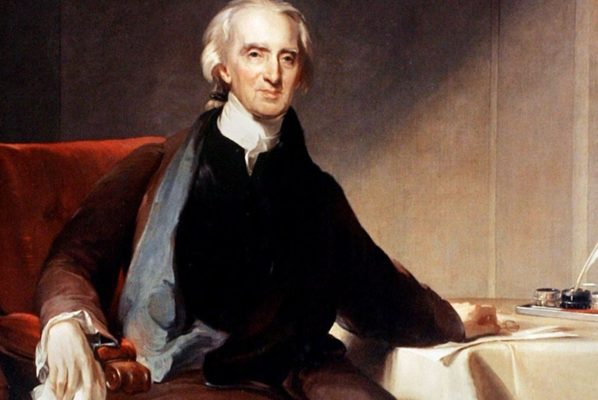I hope your Memorial Day Celebrations were filled with honor and respect for our fallen warriors. May we never forget the millions of men and women who have given their lives so that we may enjoy our freedom today.
Let’s continue with a look at some of the signers of the Declaration of Independence. Studying the lives of these men will hopefully quicken in our hearts the love of the history of our country and the price they paid to create it.
Charles Carroll was one of the wealthiest signers of the Declaration of Independence and the only Catholic involved in its signing.
His father, Charles Carroll, also known as Charles Carroll the Settler, was from Ireland and migrated to America near Baltimore around 1659. He became prominent in the earliest stages of the city’s growth and purchased a large plantation. He served under Lord Baltimore as a judge and land office register. His son Charles Carroll was involved in the Political structuring of the new-found Nation.
He served on various committees for the cause of freedom but was not allowed to hold public office because he was Catholic.
He was famous for a series of articles he published in The First Citizen, decrying the abuse of the Governor of Maryland at the time. From this series of articles, he was labeled “a most flaming patriot.”
He is quoted as saying, “Without morals, a republic cannot subsist any length of time; they therefore who are decrying Christian religion (whose morality is so sublime and pure)…are undermining the solid foundation of morals, the best security for the duration of free governments.”
He missed the actual vote for the Declaration of Independence on July 2, 1776, but arrived ten days later to take his seat in Congress. On July 19th, Congress adopted a resolution to write the Declaration on parchment with attached signatures. This was a most serious step, for if they lost the war, they would lose everything, including their lives. Carroll was a millionaire, and this was a huge step for him and his family.
When signing he was questioned by John Hancock since he signed it Charles Carroll. Hancock noted that. “we could not tell which Charles Carroll is signing it” because he had the same name as his father. Charles took the pen again and finished it with the words “of Carrollton,” the name of his estate in Maryland.
He was the longest-living signer, dying at the great age of 96 on November 14th, 1832.
Until next time…
